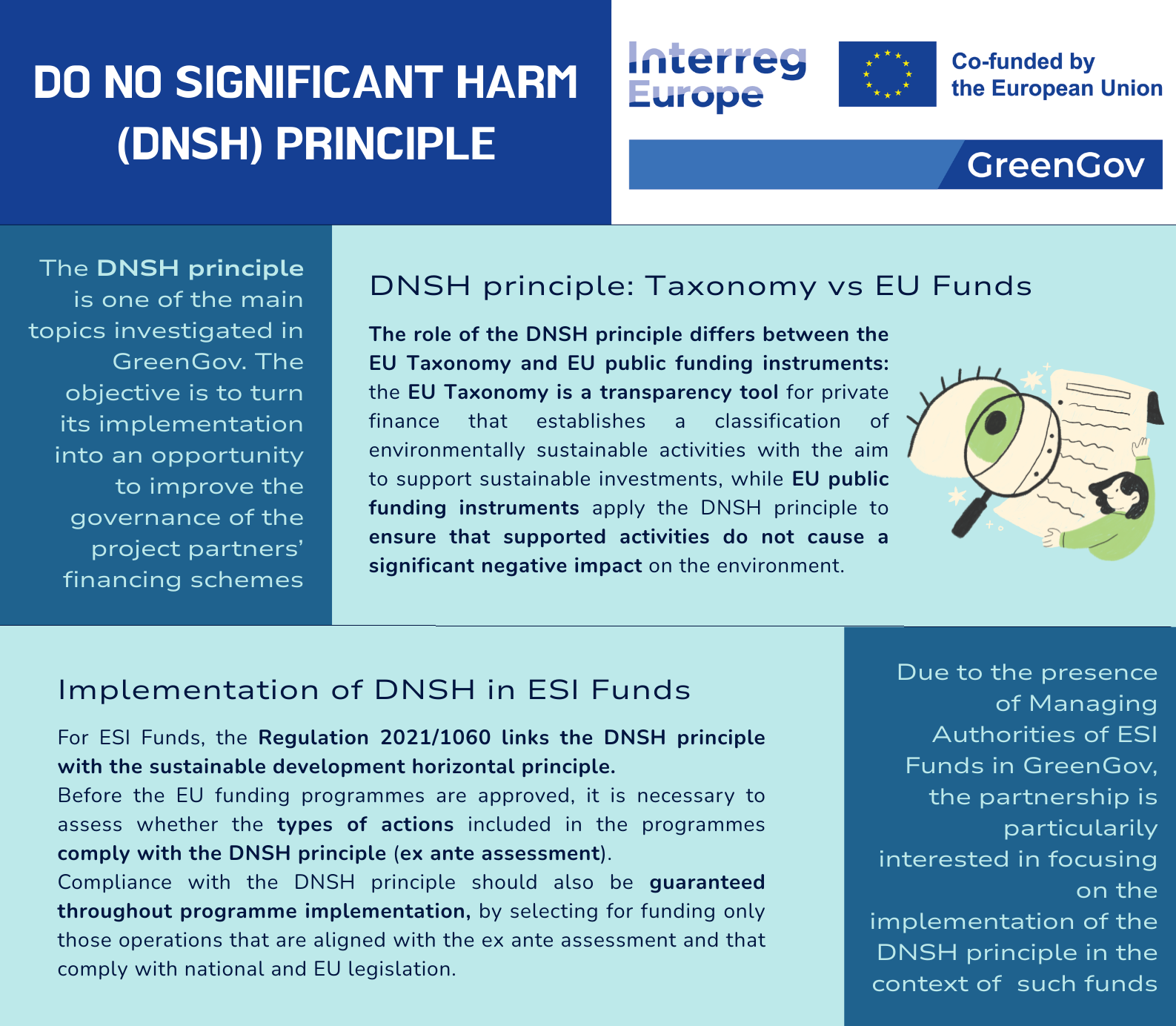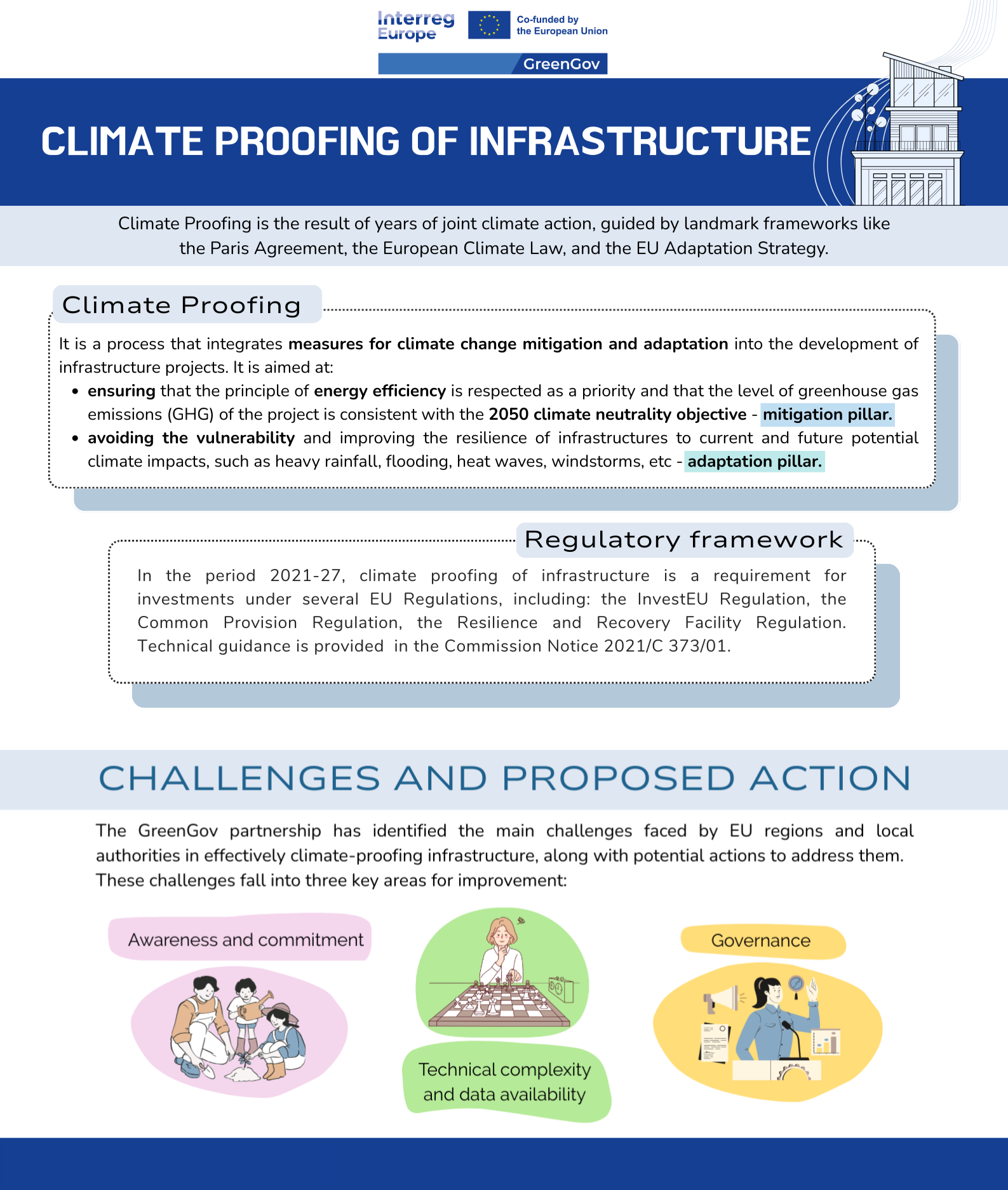[October 2025] The first two thematic briefs produced by the Interreg Europe GreenGov project, focused on the “Do No Significant Harm” (DNSH) principle and Climate Proofing of infrastructure, are now available online. These documents provide an overview of the European regulatory framework, highlight the main operational challenges, and propose practical recommendations to improve the implementation of these principles.
Poliedra, as the advisory partner for the project, coordinated their elaboration, drawing on its technical assistance experience in the 2021-2027 ERDF programming for Lombardy Region and Sardinia Region, and systematizing contributions from exchanges among European partners.

DNSH: from constraint to opportunity
The thematic brief on the DNSH principle highlights several recurring critical issues in both the Italian and European contexts, including:
- the need for harmonized criteria at the European level and better coordination with other environmental procedures
- the shortage of specialized skills and shared evaluation tools
- the necessity of a cultural and operational shift, both within managing authorities and among beneficiaries
Among the recommended actions to promote the role of DNSH as a lever for improving the sustainability and quality of projects (rather than being seen solely as a regulatory constraint) are:
- fostering harmonization of criteria and approaches among regions and EU countries, and adopting proportional approaches
- developing clear operational guidelines
- strengthening cooperation among different offices and competencies
- investing in targeted training
Climate Proofing: making infrastructures more resilient to climate impacts
The second brief is dedicated to Climate Proofing, i.e. integrating climate change mitigation and climate resilience into the planning and implementation of infrastructure. Key challenges identified include:
- limited availability of climate data and suitable operational tools
- the need to strengthen technical skills within administrations and among professionals (designers, planners)
- still modest awareness of the necessity to act in relation to climate change
The proposed recommendations include:
- developing tools – even simplified, but methodologically sound – to assess vulnerability and resilience to climate change
- activating training and certification pathways for technicians and officials
- integrating climate proofing criteria from the earliest stages of project design and selection

Se sei interessato a questi temi, iscriviti alla newsletter di GreenGov per restare aggiornato sulle attività e i risultati del progetto!

